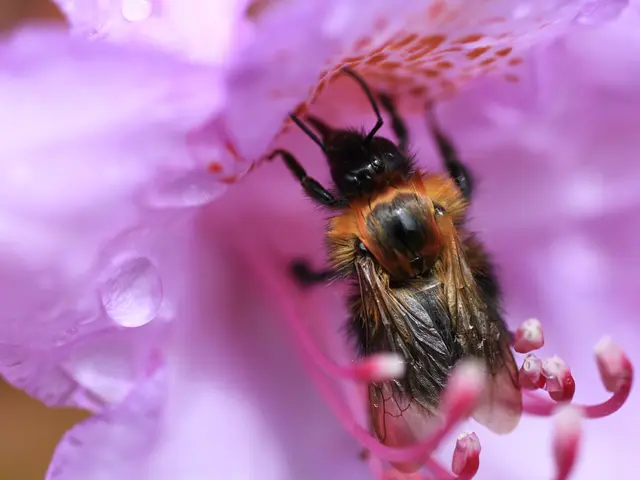Understanding the Concept of Evolution in 2025: A Perspective on Natural Selection and Species Development Over Time.
Evolution: The Process That Shapes Life
Evolution revealing the tale of life's transformation over eons is one of science's most crucial ideas. It's the reason behind the emergence of new species and the tailoring of organisms to their surroundings. Charles Darwin, through his groundbreaking work On the Origin of Species (1859), proposed the theory of natural selection, the cornerstone of evolutionary science.
Table of Contents
Grasping Evolution
Evolution is about the change of heritable traits in organic populations across generations. It encompasses the development of new species and adaptation to environments.
Key Mechanisms of Evolution
- Natural Selection: Organisms best adapted to their current setting tend to thrive and reproduce, passing on advantageous traits to their offspring.
- Insignificant changes (mutations) to the DNA sequence can sometimes lead to beneficial variations, such as increased resistance to antibiotics.
- The ability to evolve also buffers against disease and environmental changes.
- Genetic Drift: Unpredictable shifts in allele (gene variant) frequencies in populations, particularly pronounced in smaller populations.
- Mutations can sometimes lead to unique gene variations within populations, as well as the loss of alleles affecting traits essential for survival.
- Changes in population size and geographic isolation can alter gene frequencies without regard to environmental benefits or disadvantages.
- Gene Flow: Transfer of hereditary material from one population to another, often due to immigration or hybridization.
- Gene flow can help increase genetic diversity, ensuring populations remain resilient to environmental changes and diseases.
- Understanding gene flow is essential in trace the causes and impacts of diseases and genetic disorders across populations and species.
Evolution in Action
- Antibiotic Resistance: Microbes develop resistance to antibiotics due to selection pressure resulting from their excessive use.
- Darwin's Finches: On the Galápagos Islands, finches evolved different beak structures to adapt to various food sources, showcasing natural selection at work.
The Importance of Evolution
- Biodiversity: Understanding evolution provides insights into the myriad species present on Earth and their interconnectedness.
- Medicine: A knowledge of evolution is essential in combating diseases, such as predicting seasonal changes in infections for vaccine development.
- Ecology: Evolutionary principles help explain species relationships and environmental elements, aiding in the conservation and management of ecosystems.
Misconceptions About Evolution
- "Evolution Is Only a Theory": In science, a theory is a well-supported explanation, rather than a simple idea or guess.
- "Humans Developed From Monkeys": Humans and modern monkeys share a common ancestor; they did not evolve directly from one another.
- "Evolution Goes against Religion": Many religious people and organizations find ways to reconcile evolution with their religious beliefs.
Conclusion
Evolution is a fundamental scientific concept that explains how life evolves and adapts over time. By understanding evolution, we gain valuable insights into the history of life on Earth and various aspects of modern biology and ecology. Recognizing the intricate connections between species allows us to better appreciate the web of life that ties every living being to each other.
Enrichment Data:
Importance of Evolution in Medicine
Disease Resistance
- Understanding evolutionary principles: Helps in predicting and combating the adaptive evolution of pathogens like bacteria and viruses. The knowledge aids in developing new treatments and vaccines to neutralize the threats posed by drug-resistant strains of bacteria and viruses with mutated genome sequences.
Impact of Evolution on Biodiversity and Ecology
Species Interactions
- Adaptation and co-evolution: Changes in an organism's anatomy, physiology, or behavior, triggered by environmental factors, can create new opportunities for other species. Thus, adaptation acts as a catalyst for co-adaptation, the process through which multiple species adapt to one another.
Misconceptions Continued
- "Evolution Isn't Occurring Today": Although some slow-evolving species might not show noticeable changes over human lifetimes, many organisms are constantly evolving, adapting to their varied environments and exchanging genetic material (a process known as gene flow) through breeding or other means.
Science in the realm of health-and-wellness and fitness-and-exercise underscores the significance of maintaining genetic fitness as humans age. Aging, being a net accumulation of unadaptive mutations, can be mitigated by regular exercise and a balanced diet, thereby reducing the susceptibility to diseases and promoting overall well-being.
Environmental-science, in its broader context, incorporates evolutionary biology. Understanding the mechanisms of evolution, such as natural selection, genetic drift, and gene flow, enables us to take informed actions regarding conservation, mitigating the adverse effects of human activities on biodiversity, and ensuring a sustainable environment for future generations.







